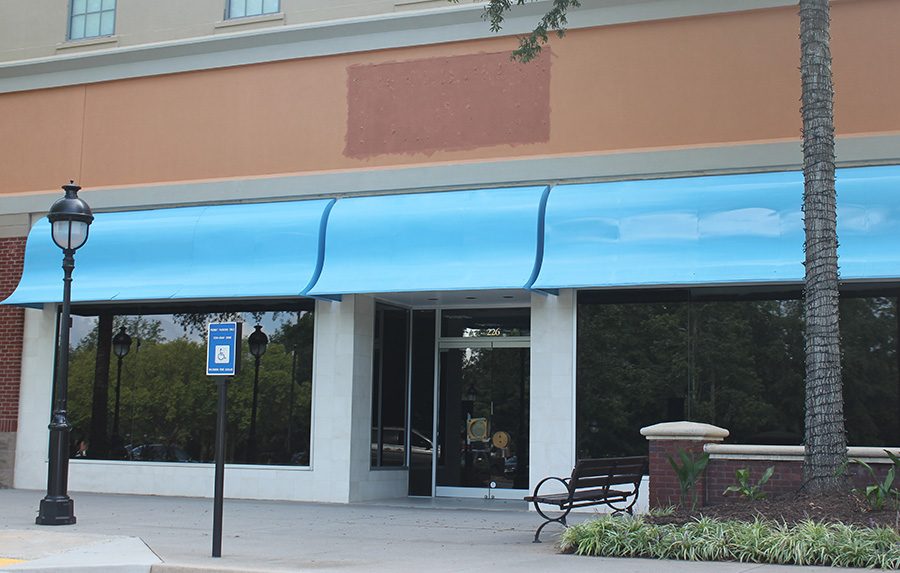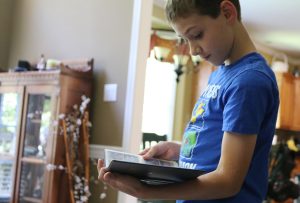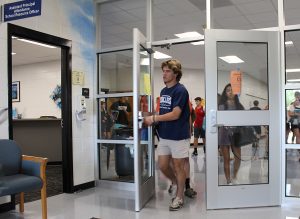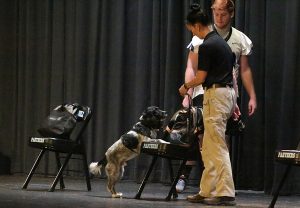Money leaving Peachtree City causes multiple stores to close
Vacant retail space after Children’s Place closed its doors over the summer. At least four stores have closed in the Avenue in the past six months.
September 1, 2019
The Avenue, a shopping center in Peachtree City, has seen its fair share of businesses throughout the years. From books to bison burgers, The Avenue has been home to a variety of retailers. However, now that “going out of business sale” signs seem to be making their way from window to window, consumers can only ponder what the underlying cause is.
A large component causing businesses to struggle in the Avenue has had to do with the economy and how high renting rates are. However, the convenience factor for customers and consumer sovereignty have also contributed tremendously in deciding which stores continue to stay afloat.
For the past six months, the Avenue has seen the closings of at least four stores with more possibly underway. Since Dec. 31, 2018, Brixx Pizza, Which Wich, The Children’s Place, and Claire’s have all left Peachtree City to take their business elsewhere.
“There are quite a few [businesses] that have closed in the Avenue,” Peachtree City’s Mayor Vanessa Fleisch said. “There has been new management at The Avenue, so there may be some strategy that they are working that we are unaware of.”
Despite the trend of closing stores in the area, Peachtree City’s economy continues to exceed standards with a citizen occupation rate in the 90s. However, while the Bubble has been economically stable for over 10 years, it is no stranger to economic calamity.
“In 2008, we were in the initial stages of the banking crisis, and we all knew something was coming and it wasn’t going to be pleasant,” Fleisch said. “We saw far more closings of retail establishments and it was hard to recruit businesses to come to the city because overall the economy wasn’t doing well.”
While the local government was able to promote businesses in an effort to fill vacant buildings in 2008, there was not much else they could do in terms of keeping stores open. Even now, the government has almost no say as to what goes on in the Avenue because it is a privately owned entity.
“My philosophy of the city is that we are there to help businesses work and facilitate,” Fleisch said. “They own the property and we just want to create a business-friendly environment, so it’s up to them, who they have, and what their corporate philosophy is.”
The economy in Peachtree City is above average in retrospect to some of its surrounding counties. However, the city as a whole would be much better off if its citizens remained in the city limits for their shopping needs.
“I think there are a lot of people that assume that if they go to Sam’s Club, Peachtree City gets the tax money from it, and that’s not the case,” Fleisch said. “The more you shop within Peachtree City, that’s where the sales tax goes.”
Citizens may be getting a better deal by shopping outside the city, but in the long run, this ends up crippling their community. According to Mayor Fleisch, the money collected from sales tax goes to preserving lakes, maintaining recreational areas, and re-doing golf cart paths.
“It’s getting harder and harder to keep [recreational projects] going when you see places like Costco and Sam’s opening up,” Fleisch said. “That’s called economic leakage. When people from Peachtree City go and shop in Sharpsburg, Coweta County gets the money, but we get the traffic.”
Money leaving Peachtree City may impact projects that benefit the community, such as repaving cart paths, maintaining the roads, and preserving lakes. Individuals shopping in city limits insure that the Bubble’s best qualities will remain intact.









